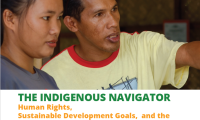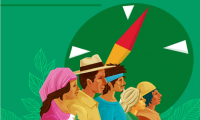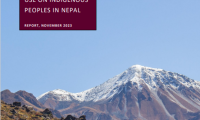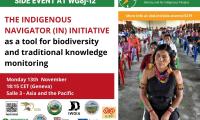Peru: Quechua del Pastaza analyzes the degree of implementation of the UNDRIP
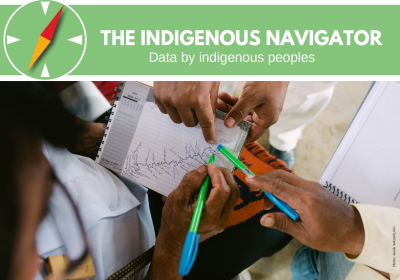
In successive community assemblies held between June 28 and July 4, 2018, the Quechua del Pastaza Amazonian people worked together to collectively analyze the degree of implementation of the UNDRIP through the community questionnaires of the Indigenous Navigator Project.
The Quechua del Pastaza Indigenous Federation - FEDEQUEP, which represents 19 communities in the Pastaza River basin in the districts of Andoas and Pastaza (Loreto Region), is a counterpart of the Public Policy and Human Rights Center of Peru Equidad in the implementation of the Indigenous Navigator.
151 community members and local authorities from three Quechua communities in the district of Andoas participated: Nuevo Andoas, Nuevo Porvenir and Sabaloyacu. 30% of the participants were women. In addition, a group of community environmental monitors that are active members of the FEDIQUEP responded to the questionnaire through a focus group.
Regarding the surveys, the president of FEDIQUEP said:
It has been a long exercise, but what we liked is that it has helped us to see other aspects of our rights as an indigenous people.
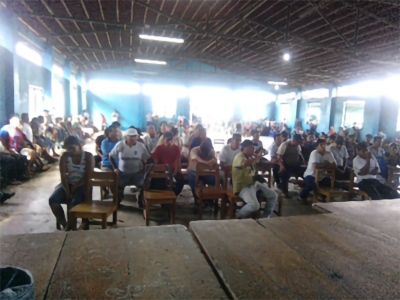
For four decades the Quechua del Pastaza people have been immersed in the reality of oil extraction activities, which are carried out in their territory. Overlapping its traditional territory is lot 192, in the North-Peruvian Amazon, where environmental and health impacts have been accumulated without the Peruvian State having protected the collective rights of the Quechua, Achuar and Kichwa peoples.
Imelda Chung, then in the position of Indigenous Mother of FEDIQUEP said:
Better knowledge and understanding of international laws strengthen us to demand that our rights be fulfilled and respected.
It is not surprising that the Quechua found during the activity of the Indigenous Navigator that various rights established in the United Nations Declaration on the Rights of Indigenous Peoples are not implemented by the Peruvian State.
Previously, FEDIQUEP together with the federations of the Achuar, Urarina, Kichwa and Kukama peoples constituted the PUINAMUDT in 2011. PUINAMUDT is a platform from which they are able to claim their rights, including the right to consultation.
A first consultation with the communities for Lot 192, carried out in 2015, ended abruptly when the government decided to sign agreements with an organization irregularly included by the State in the consultation process.
On May 4 of 2019, using the information from the Indigenous Navigator, the Quechua, Achuar and Kichwa peoples signed agreements referring to the plan for a new consultation process that will allow inserting social and environmental safeguards in the new contract of the Lot 192 for the next 30 years. The agreements reached in this plan constitute an unprecedented advance in the consultation processes in Peru and have been possible thanks to the fact that the indigenous peoples of the area, such as the Quechua people, have increased knowledge of, and stronger understanding of their rights and are able to demand that they are respected.
Without a doubt, a success story worthy of sharing.
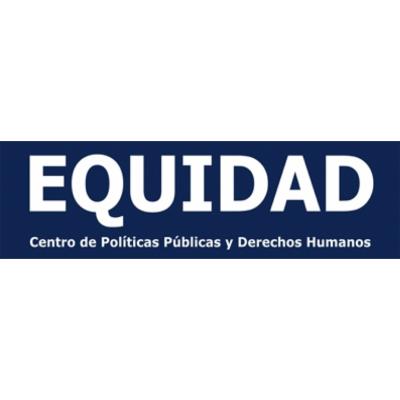

Contact

